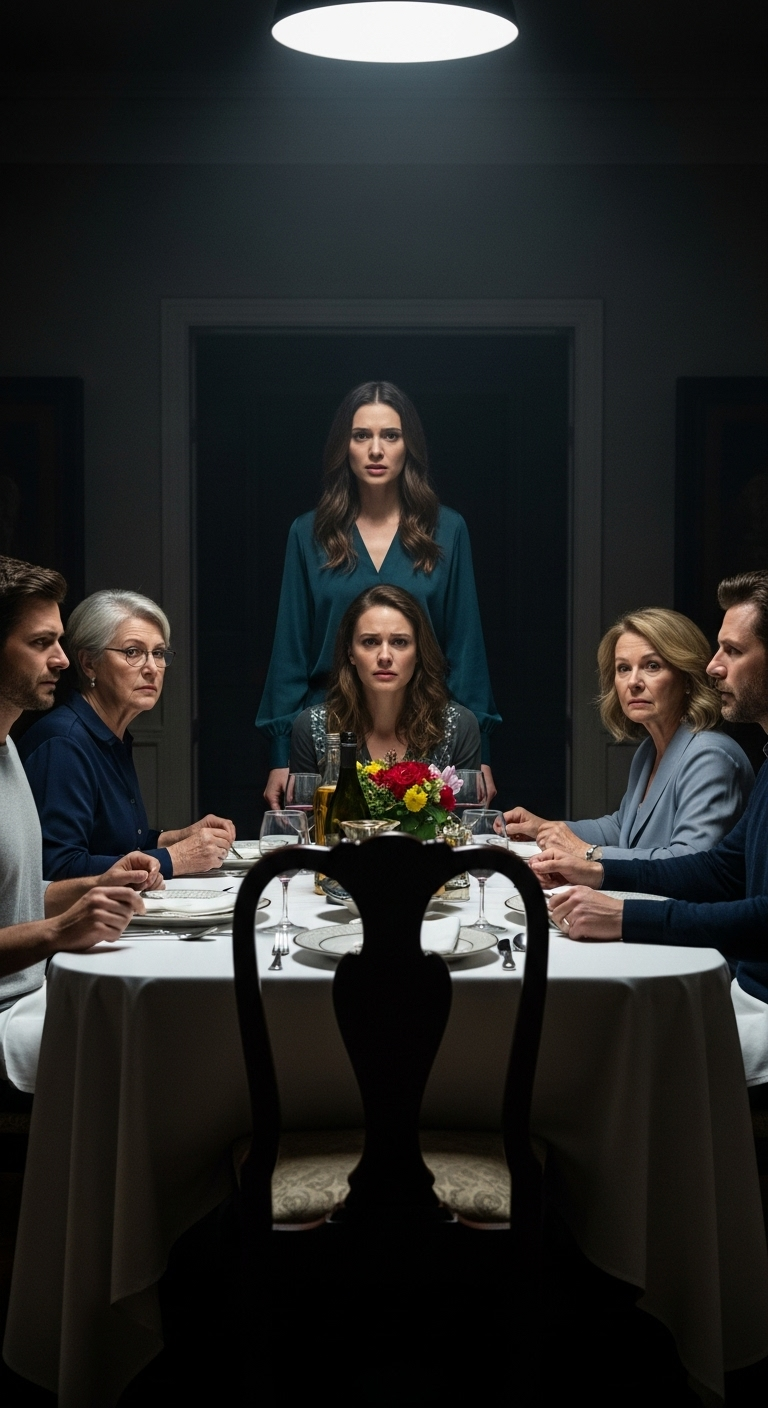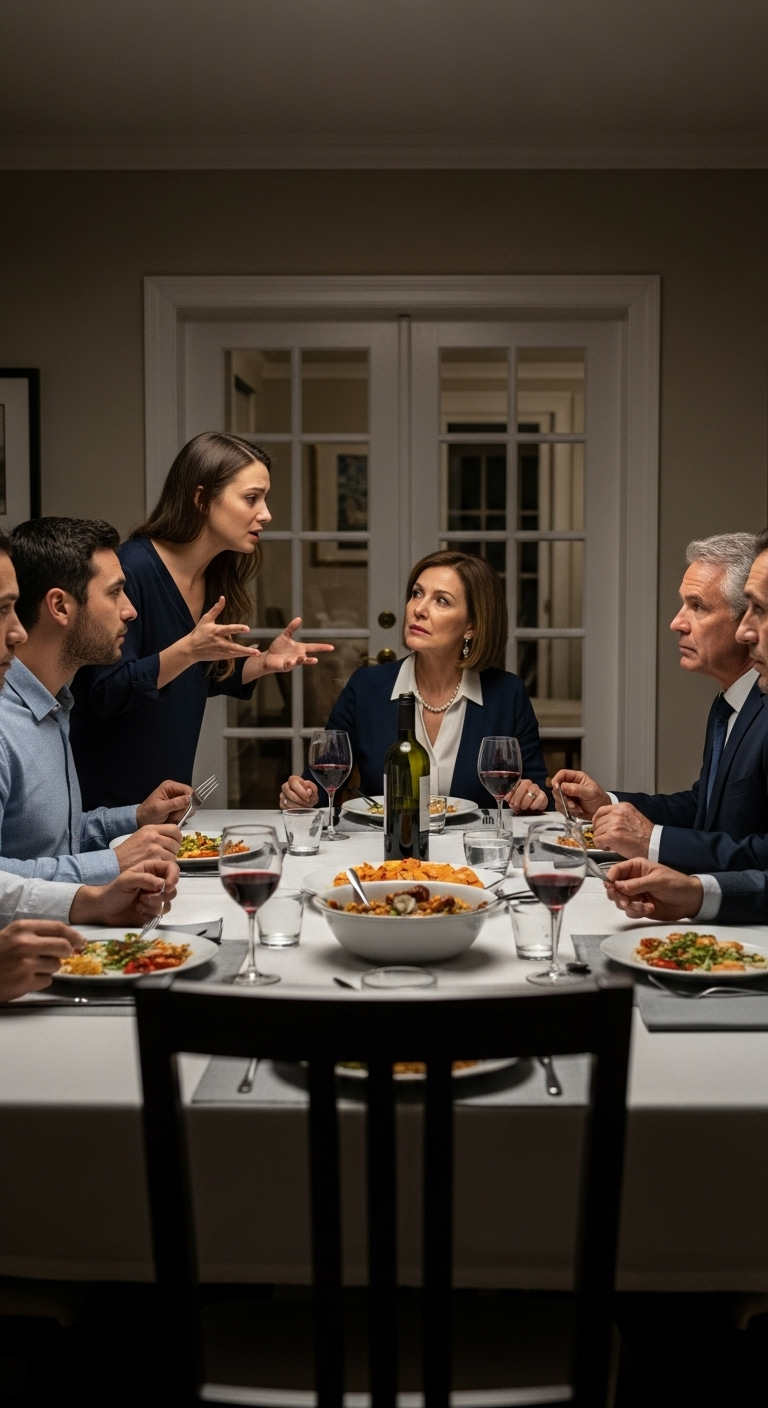A Choice of Betrayal
I’m Abigail, 29, and I stood alone at my baby Emily’s funeral while my parents attended my brother’s pool party. My daughter was only six months old when SIDS took her from me. As I watched her tiny, white casket being lowered into the ground, my mother’s words echoed in my mind: “It’s just a baby. Your brother’s party matters more.” That day, something inside me shattered beyond repair.

Growing up, I always knew my place. My brother, Jason, now 32, was the golden child. From the moment he was born, our parents, Margaret and Richard, created a family dynamic where his achievements were celebrated with extravagant parties, while mine were acknowledged with obligatory cards—if remembered at all. This pattern continued throughout our lives. Jason’s average grades were praised as the efforts of a “well-rounded individual,” while my straight A’s were expected and unremarkable.
By high school, I’d accepted my place in the family hierarchy. I focused on building my own life, excelling in academics, and forging friendships with people who actually valued me. I met Michael during my sophomore year of college. He came from a warm, supportive family that initially felt alien to me. The way his parents showed interest in his day, remembered important events, and expressed pride in his accomplishments seemed almost theatrical until I realized this was what normal family love looked like.

Michael and I married three years ago when we were both 27. When we announced our pregnancy, Michael’s parents immediately started planning the baby shower. My parents responded with, “Oh, that’s nice. Did Jason tell you he might get promoted at the firm?” They attended the baby shower but spent most of it talking about Jason’s recent vacation.
Emily was born on a snowy January morning. Holding her for the first time, I felt a love so intense it physically hurt. Michael’s parents arrived at the hospital within hours, bearing gifts, tears, and so much joy. My parents came the next day, stayed for exactly 45 minutes, and left when my mother remembered she had a hair appointment. Over the next six months, Michael’s parents visited weekly. My parents visited exactly twice.
Two months before Emily died, Jason announced his engagement. My parents immediately began planning an elaborate party, scheduled for the same weekend as Emily’s dedication at our church—a ceremony my parents had already committed to attending. When I reminded my mother of the conflict, she said, “Oh, we’ll have to miss the baby thing. This is Jason’s engagement, Abby. That’s a once-in-a-lifetime event.”

“A baby dedication only happens once too,” I wanted to say, but I swallowed the words.
A week before Emily died, she developed a slight cold. By the weekend, she seemed better. I had no way of knowing those would be our last days together.
It was a Tuesday night when our world collapsed. Michael and I had put Emily to bed around 8:00 PM. The baby monitor remained silent all night—too silent. When I woke at 6:00 AM, something felt wrong. I went to her nursery. In her white crib, Emily lay still. Too still.
“Emily,” I whispered, touching her cheek. It was cold.
What happened next exists in my memory as disjointed fragments: my screams, Michael performing CPR, the 911 call, the paramedics’ grim faces, and a doctor with kind eyes delivering the worst news any parent could hear. “I’m so sorry. Your daughter died from what appears to be Sudden Infant Death Syndrome.”
With shaking hands, I dialed my mother’s number. “Mom,” I said, my voice breaking, “Emily died last night.”

There was a pause. “Oh, Abby, that’s terrible.” No gasp, no tears, no promise to come right away. “We need to arrange a funeral,” I continued, desperate for her to be a mother to me.
“Yes, I suppose you do. Let us know the details.” That was it.
My in-laws, in contrast, were already on their way to the hospital.
The next few days passed in a blur. We set the funeral for Friday at 11:00 AM. When I told my mother, she repeated, “Friday? Oh dear, that’s the day of Jason’s pool party. We’ve already committed to that.”
I thought I’d misheard her. “Mom, this is Emily’s funeral. Your granddaughter’s funeral.”
“I understand that, Abby, but we can’t cancel on Jason now. All the arrangements are made.”
“No, Mom, I don’t understand. Please explain it to me.”
She sighed. “Abby, I know you’re upset, but think rationally. It’s just a baby. Your brother’s party matters more. Emily was only here for a few months. You can always have another baby, but Jason’s engagement is important to his future.”
The words hit me like physical blows. “I see,” was all I could manage before hanging up.
The morning of the funeral was cruelly beautiful. As we drove to the cemetery, I checked my phone, hoping my parents had changed their minds. There was only a text from Jason: Sorry about the baby. Hope the funeral goes okay. Excited to see everyone at the party later.
Emily’s casket was impossibly small. My in-laws flanked us, my mother-in-law openly weeping. The conspicuous absence of my parents and brother created a void that everyone politely pretended not to notice. During the service, my phone vibrated. Jason had posted photos from his pool party: my parents, smiling with champagne glasses in hand, celebrating while their granddaughter was being lowered into the ground.
The Confrontation
A week later, my mother called. “Abby, how are you?” she asked casually.
“My daughter died and was buried without her grandparents present,” I replied flatly. “How do you think I am?”
“Now, Abby, there’s no need for that tone. We’re calling to invite you and Michael to Sunday dinner. It would be good for you to get out of the house. Jason and Stephanie will be there. It might take your mind off things.”
Take my mind off things. As if my child’s death were a minor inconvenience. “I have to go,” I said and hung up.
Against my better judgment, I agreed to attend. The conversation at dinner revolved entirely around Jason’s wedding. Finally, I couldn’t take it anymore.

“Did Emily’s funeral interfere with your pool party?” I asked, my voice cutting through the chatter.
The table fell silent. “Abby,” my mother said with a nervous laugh, “let’s not bring up unpleasant topics.”
“Unpleasant topics?” I repeated. “You mean my daughter’s death? Your granddaughter’s funeral that you skipped?”
“Now, Abby,” my father interjected, “what’s done is done. No sense dwelling on the past.”
“The past? It was two weeks ago!”
Jason rolled his eyes. “See? This is why we didn’t want to bring it up. You always make everything so dramatic, Abby.”
“Dramatic?” I stared at him. “My baby died, Jason! And none of you came to her funeral because you were too busy having a pool party!”
“It wasn’t just a pool party,” my mother said defensively. “It was a celebration of Jason and Stephanie’s engagement.”
“But you could miss your granddaughter’s funeral? You could tell me, ‘It’s just a baby’ and that I can ‘always have another one’?”
Michael, silent until now, put down his fork with a clatter. “I’ve sat here trying to be respectful, but this is beyond belief. Do you have any idea what Abby has been through?”
“Actually,” my mother said, “several relatives asked where we were. We told them we couldn’t attend due to health issues. Your father’s back, you know.”
They had lied. They were ashamed enough to lie but not ashamed enough to show up. “You lied?” I whispered.
“Well, we could hardly tell them we were at a pool party, could we?” my mother replied.
“I don’t understand,” I said, standing up. “And I never will.” Michael and I left without finishing dessert.
The Reckoning
Over the next few months, with the help of a grief counselor, I began to unpack a lifetime of favoritism. This wasn’t just about the funeral; it was about the ultimate dismissal of my most profound loss. I decided I needed them to understand what they had done—not just to me, but to Emily’s memory.
After gathering my thoughts, a timeline of their neglect, and messages from relatives who had been lied to, I arranged a meeting.
“I wanted to talk about Emily’s funeral and why you weren’t there,” I began, placing a framed photo of my daughter on the coffee table between us. “This is your granddaughter. The Emily whose funeral you skipped to attend a pool party.”
I laid out the timeline, the evidence of their lifelong pattern of dismissal. I showed them the screenshots from the party, timestamped during Emily’s service. My mother’s composure finally cracked.
“What do you want from us, Abby? We can’t change what happened.”
“No, you can’t. But you can acknowledge it. You can recognize the pain you caused.”
I then read them a letter I had written, explaining the depth of their betrayal and the invalidation of my daughter’s existence. I concluded, “For now, I’ve decided to take a step back from our relationship. I need time and space to grieve Emily without having her existence diminished. If someday you’re willing to truly acknowledge what happened, without excuses, then perhaps we can begin to rebuild. Until then, this distance is necessary.”
My father scoffed, “You can’t be serious. Cutting us off over one missed event.”
“It wasn’t one event,” I replied. “It was the final event.”
As I turned to leave, my mother called after me, her voice breaking, “Abby, please don’t go like this.”
I paused at the door. “I’m not going anywhere, Mom. I’m right where I’ve always been. You’re the ones who weren’t there when it mattered most.”
A New Beginning
In the months that followed, things began to shift. First, my father sent a handwritten letter. “…We were wrong,” he wrote. “Terribly, unforgivably wrong… I don’t expect forgiveness… but I want you to know that I hear you, and I am sorry.” My mother sent a custom-made ornament with Emily’s name and a pair of angel wings. The note read, “I should have been there. I will regret that choice for the rest of my life.”
These gestures didn’t erase the past, but they were steps toward acknowledgement. We established careful boundaries. Even Jason showed up one day with a rose bush for Emily’s memorial garden. “I should have been at her funeral,” he said. “I’m sorry, Abby.”
The acknowledgements didn’t erase the grief, but they lightened the additional burden of feeling unseen. They created space for true healing to begin. I started volunteering, helping other parents who had experienced infant loss. Working with them became my purpose, a way of ensuring Emily’s impact continued.
On the one-year anniversary of her death, we held a small remembrance in our garden. My parents came, standing respectfully at the edge. Jason and Stephanie attended briefly. As we released balloons into the sky, I felt Emily’s presence, not in a supernatural way, but in the impact she had left on all of our lives.
I had lost my daughter, but in the aftermath, I had found my voice, my strength, and a new purpose born from that devastating loss.
